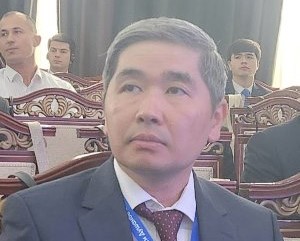Glaciers in Central Asia are melting at a rate exceeding the global average. This alarming trend threatens long-term water availability and increases the risk of water shortages, which will negatively affect food and energy security, as well as the environmental sustainability of the region, Ambassador Bakyt Dzhusupov, Coordinator of OSCE Economic and Environmental Activities, reported, NIAT Khovar reports.

“Increasing competition for resources such as fresh water and arable land increases the risks of political and social instability in the region. Managing trade-offs between communities, sectors and countries is becoming increasingly complex. In this context, it is especially important to effectively manage water resources – through strengthening regional cooperation, trust and information sharing. Inclusive and participatory approaches to decision-making are critical not only for the sustainability of climate and water initiatives, but also for conflict prevention,” said the coordinator.
Inclusive planning processes create space for different stakeholders to share perspectives, information, build mutual understanding and co-create solutions that are fair, informed and more sustainable, he said. Networks play a vital role in enabling these processes and promoting long-term regional stability by connecting local communities with experts, institutions and policymakers, facilitating knowledge sharing.
“The OSCE, as the largest regional security organization, plays an important role in strengthening transboundary water cooperation, implementing environmental agreements and promoting sustainable development. Since 1975, we not only provide a platform for political dialogue, but also implement concrete projects on the ground. Since 2021, my office has been supporting the Women in Water Management Network in Central Asia and Afghanistan. It helps women professionals strengthen their professional skills and strengthen their participation in water management. In the context of climate challenges and geopolitical instability, it is especially important to be able to negotiate and cooperate. The region already has many solutions – they need to be scaled up and implemented. That is why we launched a series of youth workshops called “Drops of the Future” dedicated to the interaction of water, energy and food in Central Asia,” said Bakyt Dzhusupov.
The workshops helped young professionals, including many women, acquire tools for analysing water issues and managing competing interests through dialogue and collaboration.





































